I’M BACK! An Update on Life and Other Things
What I've Been Up To, Life, and a Retrospective
Hey all!
It’s been over a year since I last posted here – normally I would say something like “time really flies,” but honestly, I felt like time slowed down for me over 2023. I don’t have a huge, “this is crazy!” reason for my absence – no massive project, no insane vision being crafted, no ambitious narrative being written – yet, a story was still unfolding, just not the kind I would have wanted.
Two words: creative block. The bane of creative minds everywhere, something I thought I’d be able to avoid – yet, this affliction plagued every step I took throughout the year, hounding me with every move I made to try and push myself forward as a developer, as a creative, and as a person.
That brief description of my experience may make it seem like more than just creative block, and that assessment might be right. There were several other factors I identified over time – some that can be traced to creative block – that together contributed to the mental blockade preventing me from enjoying progress in any area of life. After dedicating time to breaking this problem down, I’ve slowly – but surely – settled on practices and habits that have helped me overcome these new obstacles, and that’s why I’m writing to you guys today!
This update will try and explain the process of how I think this mental block developed, and my experience dealing with it, especially in late spring, when I began to accept that it wasn’t simply going to “go away.” I’ll then break it down into components – smaller issues that could be tackled separately – to reflect my own approach. That’ll then bring us to the beginning of this year, where I’ve been able to transition this solution into tangible results, and I’ll wrap this up with an introduction to some future potential ideas I’ve been cooking up, my newest gamedev project, and the devblog post that’ll follow!
Alright. Let’s dive into things.
Graduating From College
The End of My Studies?

If this is to be a proper retrospective, then this tale really begins with my graduation from UT Austin in 2022. The end of my final year was capped off by two long crunch weeks as my capstone project group rushed to debug, add finishing touches, and compile our final documentation, I ground through final project reviews for the procedural generation class I was TA for, completed my honors thesis, and wrapped up my work for other classes.
We also had the opportunity to showcase our game at UT SDCT’s Level Up! event, which served as an exhibit of student works that were chosen to highlight the school’s creative program. Qualified Immunity and our team was one of several that was given the opportunity to be featured, and we happily accepted! The event itself was an extensive affair that occupied a good portion of the building, and representatives from many smaller studios around Austin were in attendance, so this was a great chance for us to talk about to other developers about our game, our development and design process, and our general workflow pipeline as a team.
I also got pulled into an interview by a journalist who was covering the event, which was exciting! Watch the report and read the post here.
Taking a Break and The On-Off Work Switch
This final year could be described simply as “go go go” – between my personal projects (like Tenodru Creative!), my class workload, my thesis, and my TA responsibilities, I felt as if I was essentially on an endless full-steam-ahead mode, and by the end of the spring semester I was feeling definitively burnt out. This was outwardly evident too, as my close friends and teammates would often ask me questions to that effect. It was this burnout and the stress that lifted post-graduation that led me to make what I consider probably my first mistake in this story – deciding to take a break for the summer while I geared up for the job search in the fall.
One of my friends in the past jokingly described me as a workaholic – someone who couldn’t seem to take a break from work under any situation. In hindsight, it would’ve been more accurate to describe me as a switch workaholic – a workaholic with an on-off switch. When I’m on, I feel like my energy reserves are endless, like I can crush task after task while planning 10 moves ahead on the chessboard. New ideas flood my mind constantly as I try and coalesce existing ones into the vision I’ve already laid out, and I’ve just created a new Notion hub and Miro board to brainstorm my next 2 side projects.
However, when I’m off, I’m virtually the complete opposite. My brain seeks out the happy endorphins one gets from playing a new game or watching a funny YouTube video, the batteries are empty, the idea well has been drained…and the aquifer has dried up. Why use energy working on random thing #15? Just take a break.


My two on-off modes might as well be different people.
I suspect this has long been a characteristic of mine, and yet I didn’t consciously become aware of it until halfway through 2023, when I was at the worst of the mental block. I believe the main reason for such a delayed observation was school; for the vast majority of life, classes provided a structure to my life. I had assignments to complete, projects to work on, better grades to chase. School, and especially college, helped get me to focus my efforts on specific, concrete goals, and the AET program at UT provided an even greater boon by giving me the freedom to create the things I wanted to create while at the end of the day still giving me objectives to meet. However, once college ended…that structure disappeared, and for the first time in my life, the future was a question mark in my eyes.
An Uncertain Future
Alternatives, In Retrospect
An ambitious perspective would believe that taking a break would be a waste of time, and that you’d be better served seeking out internships and job opportunities long before the school year concluded. You could leverage your connections and your school’s network (as well as that of your peers) to build a strong, robust personal network that could improve your chances of landing a role you’d be interested in at a studio you’d be interested in – hard work, after all, pays off. This was the path of choice for a number of my AET peers.
An equally (or perhaps more?) ambitious option would be to seek out acceptance to a master’s degree program at a reputable university – furthering your education and strengthening your skills at an institution of higher learning, and potentially further improving your job opportunities, depending on your field. One of my close friends went this route, and is currently in the process of completing their master’s!
Alternatively, it may be just as logical to believe that taking a break after graduation is a good idea (assuming one could afford taking a break, of course). It would give an individual time to recharge and gather their energies for the job search ahead, and during this month or two, you could continue working on side projects at a reduced pace. Perhaps you could assemble a portfolio website, or run a blog to exercise your writing skills. Then, when you’ve reached your break’s self-assigned end, you could return to the grind feeling refreshed and ready-to-go. Of course, this is what I planned to do, and many of my friends decided to do the same.

The First Hunt – or All Bark, No Bite
As you may have suspected, this didn’t go as I had initially hoped. Before I knew it, August had arrived, and I felt nowhere near ready for the job search. Yet, I knew that I had to try regardless, and so throughout the fall I split my time between cleaning up and reorganizing my old work for portfolio reasons, and seeking out open roles in the games industry. Responses were generally poor, and scarce indeed, for some places didn’t respond at all – a waiting game that I quickly learned to opt out of. I set personal deadlines to finish applications and deadlines for responses – if I didn’t hear back from a studio in a set amount of time, I’d forget about them and continue with other locations.
By the winter, my situation remained the same while prospects dwindled as the industry entered its usual winter layoff cycle. While concerned, I was aware that this was typical behavior for the industry’s market around this time of the year, so I resolved to resume my hunt in late January. During this time, I met with friends, discussing our experiences with the job search, side projects we’d been working on, new games we were getting into (Total War for me!), and the like.
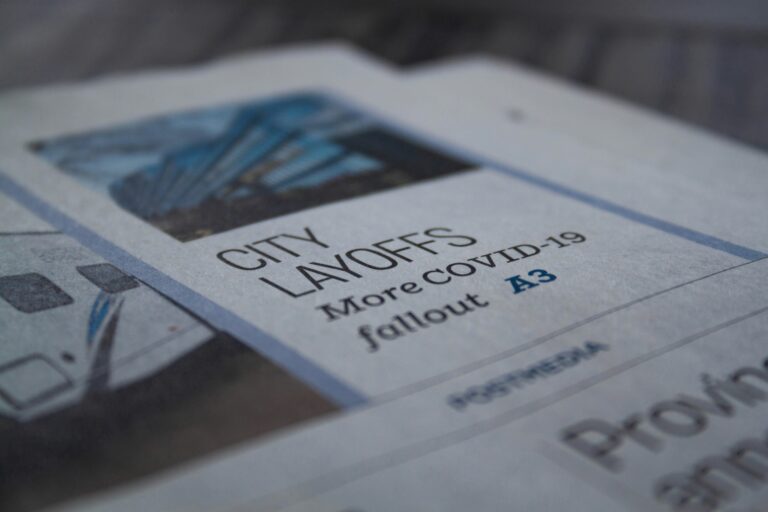
Many layoffs from companies in the tech and dev sphere are attributed to cutting back on expansion and growth during COVID.
Side Ventures, Staying Busy, and Games!
As I began the search in earnest again and faced much of the same lukewarm responses – a few interviews here and there, but generally no bite – I began to feel a little dejected about my prospects, which was a stark difference from the hopes I had right out of college. Eventually, I began to pull back on my efforts, choosing to focus instead on personal ventures to keep my creative muscles active – cleaning up code in old projects, improving old systems I designed, redesigning my website and porting over posts from my old blogs, and so on. I dipped my toes into the waters of Unreal Engine, taking classes to give me a streamlined introduction to the engine and its Blueprint/C++ hybrid scripting system. I started learning Korean on the side as well, a language that I’ve been curious about for many years now. At the end of the day, anything to keep me busy was beneficial.
Games played a significant role in staying busy too, of course (my hours in Warframe, Total War: Warhammer III, Darktide, and Diablo IV would certainly agree). I went achievement-hunting in games like Hades and Cyberpunk 2077, hunted hordes in Diablo IV and Darktide, and got into a slew of other indies like Vampire Survivors, Soulstone Survivors, Death Must Die, Crab Champions, Roboquest, and of course Lethal Company. I dove into Borderlands 3 and Tiny Tina’s Wonderlands (I love a good looter-shooter), and Overwatch, Stardew Valley, and Raft were popular picks with my friends for gaming nights.
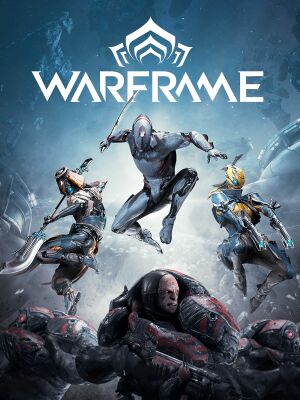
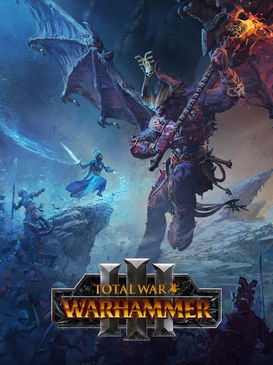
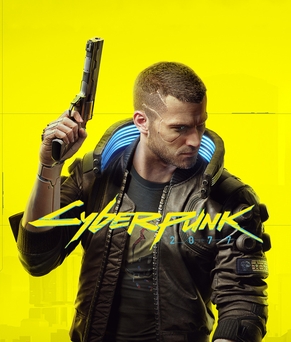
Warframe, Total War: Warhammer III, and Cyberpunk 2077 were (and still are!) some of my favorite games.
All of these games helped take my mind off of the certainly-not-ideal state of life I currently found myself stuck in, but they would also provide much-needed inspiration for additional side ventures. I wanted to write blog posts analyzing League of Legends‘ item system, and breakdowns for Warframe‘s major updates. I wanted to develop a new survivors-like game using the spawning system I wrote for A Numbers Game, and I wanted to try making a full game in Unreal. I wanted to dive deeper into learning Lua to widen my knowledge of programming languages, and I wanted to explore VR game development because it would be neat if I could create something for my brother, who owns a Valve Index.
So why didn’t I do any of these things?
Nothing, Nowhere…All At Once
The problem is, I did try to tackle many of these ideas. I began writing a blog post for Warframe‘s Duviri Paradox update, and I made note of points I could touch on for a League of Legends item breakdown. I hopped into Unity to start working on a new roguelite, and I continued my exploration of Unreal Engine. I worked on a design test for a small studio whose native engine used Lua scripting, and I took time poking around making interactive worlds in VRChat.
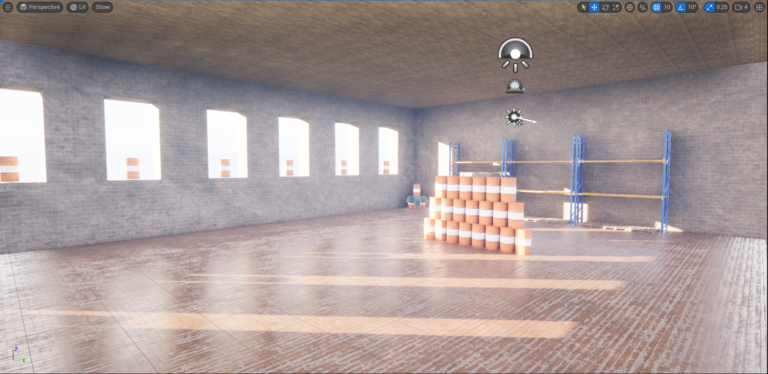
One of the first projects I put together in Unreal – a simple indoor scene where I primarily played around with materials, meshes, and lighting.
Yet, none of these ventures seemed to go anywhere (I even turned down the studio because I couldn’t reasonably move to California on the salary they offered). I had trouble thinking of what to write for my blog posts, and even the update breakdown I was in the process of writing for Warframe took a backburner to the actual update once it released in late spring. The hardest for me were my Unity ventures – all I wanted to do was make a game (or just a scene, in VRChat’s case). I never had difficulty coming up with ideas to implement in any of my past years doing gamedev…so what was the problem? What was blocking me from exercising the skills I knew I had?
I didn’t have an answer then. What I did know was that I simply didn’t feel confident in making things anymore, and that frustrated me. Each project ended almost as soon as they began, and soon I had a veritable backlog of scarcely-started works across a frankly embarrassing number of platforms. Some of these projects I tried to spin into new ones – others I simply discarded, tossed into the ether where I’m sure the old idea well was draining into anyway. I was effectively doing nothing, and going nowhere, with any of these ideas. At the same time, the frustration and anxiety I was getting from all of this slowly pushed my mental and emotional state deeper into a chasm I was finding it ever more difficult to climb out of. If this sounds familiar, you’ll probably quickly understand the new challenges this presented.
Some days were better than others. Those days, I was able to latch onto ideas for longer than a few minutes at a time, I had my Notion pages and Miro boards open for longer than usual, and I was seeking out answers to problems without losing interest in whatever I was trying to implement. Still, it wasn’t nearly enough to balance out everything else, and eventually this mental block would begin to affect other aspects of my life as well – my sleep schedule took a terrible hit, my workout routine was no longer a routine, and I even found myself becoming more easily-frustrated with antics from others that normally wouldn’t affect me.
There were a few things that kept the lights on, so to speak. New interests, like fully diving into Warhammer lore, and renewed ones, like music, helped keep me sane and somewhat at ease during a time where I was not only figuring out life, but also trying to figure out how to figure out life. For those who’ve had similar experiences, you may understand how difficult it is to not only break out of this mental state, but also how difficult it is to accept that you’re in this state in the first place. It was like my ship had been caught in a storm and sunk, and I was now stranded at sea, struggling to keep my head afloat. It’s sink or swim, but even an Astartes will run out of stamina eventually in the endless ocean.

Escaping this perpetual prison felt like an inhuman task.
It took me months, but by early winter, I finally understood that I couldn’t simply brute-force my way to survival, nor could I rely on chancing upon another ship to bail me out. I accepted that I alone needed to be the deciding factor in rediscovering my creative spark.
All I needed to do was push myself.
A Renewed Spark
Rediscovery and Setting Goals
The year was ending and I had very little to show for it, a realization that sparked a renewed sense of motivation within me. I needed to give myself direction, set myself specific, concrete goals to chase down; but most importantly, I needed to push myself to follow through with the projects and plans I’d laid down. In the past, perhaps I’d been too ambitious, too big, and too hopeful, all at once. I tried to tackle too many things across too wide of a field, and whenever I hit a new snag in the road – an idea I couldn’t figure out how to implement, or a message of rejection from another studio – I let it affect me far too personally, far too deeply, when I would’ve been far better served simply acknowledging the obstacle and pushing through it, or moving on.
A part of the new strategy I was forming to attack this mental block was to start small. I’d tackle individual goals piecemeal, and when I felt like I had a solid foothold on the path to one goal, I’d move on to begin another. Slowly but surely, I would fabricate a new ship from the remains of the old.
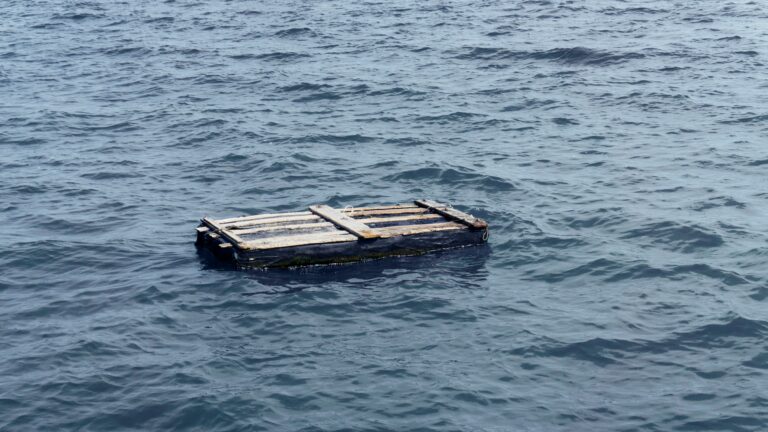
I resolved to start with small individual goals, then work my way outward.
My first goal was, of course, job hunting. I was fortunate to have a part-time offer here in my hometown, a job at a small learning center that gave lessons on beginner coding and game design for young students. I took the job, and it’s given me something tangible to do outside of my personal work, as well as some extra pocket cash while I keep looking for a full-time position.
My second goal was to push myself through a new gamedev project, and ironically, starting this new project with no goals and no vision at all seemed to work. I spent a few days putting together a modular player movement system in Unity, along with some basic FPS weapon controls. I want to expand the weapon system far beyond this, as well – creating melee and ranged weapons, making attacking feel fluid and impactful, and trying my hand at animations again (something I’ve historically been weak with). I’ll be dropping my first devblog post about this in the near future, so keep an eye out for that!
Third – and this was important – was getting back into the groove of writing. Not only did I want to keep writing for my blog, I also wanted to keep up my old documentation practices. It might sound strange, but I’ve always enjoyed doing documentation work, especially for code (plenty of evidence in my portfolio). It’s one reason why I tend to focus on making my code easy to understand and maintain – I find satisfaction in improving these aspects of my coding style.
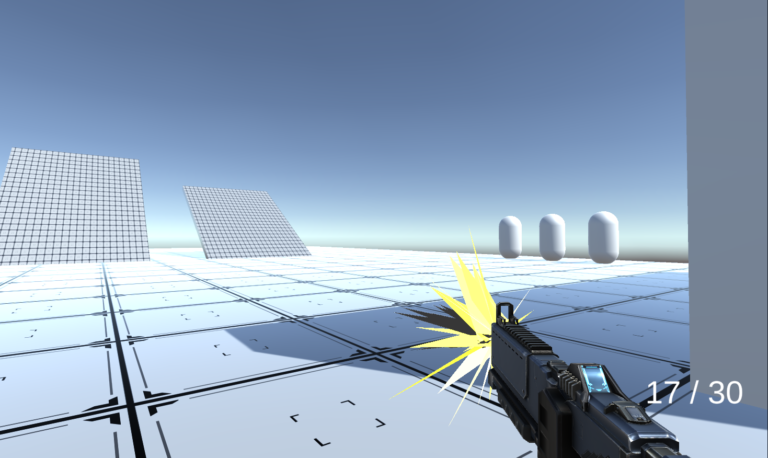
It’s simple, but still something – and I have plenty of ideas planned for this project.
As always, there’s a plethora of other ideas that I wanted to explore – starting a new blog for music, making a full game in Unreal, and even trying my hand at mobile development again, for starters – but I knew that I needed to focus on a handful of concrete goals first before trying to over-extend myself again. And, miraculously?
This is actually working.
Today, Tomorrow, and On
Which brings us to today.
I’m not 100% sure if I’ve been able to fully overcome the mental block – there are some days where I still struggle with getting certain tasks done, where the motivation isn’t quite there, or the battery isn’t quite full. Sometimes I feel like I’m still lacking the creative spark that used to define my work, like I have to look a little deeper into the idea well to find something interesting to explore.
But those days, now, are the ones that are few and far between.
These days, more often than not, I find myself waking up feeling driven to get things done. I plan out specific steps to take in order to meet the goals I’ve set, and if I find myself unable to get through some tasks, I just set aside extra time to get them done the next day. Above all, I feel like I actually have ideas to chase again!
It’s early days yet still, and there’s always lingering doubt at the back of my mind that there will come another time when this motivational block will strike again, when another storm assails the ship I’ve rebuilt and leaves me stranded once more in endless blue among the debris of my craft.
This time, however, I know what it takes to rebuild.

I’m prepared to sail the creative seas once again.
Thanks for Reading!
Thanks for sitting through this post! This is my first real blog post in a long while, and although I didn’t originally plan to write this much, I think it worked out. I’d never quite experienced a mental block like this in all my years as a creative, so it took me a lot of time to figure out how I could overcome it – and how I could prepare to do so again in the future, if need be. My main regret is that it took so long in the first place, and I’m sure some of you readers out there can sympathize. However, it’s important to keep in mind that we aren’t defined by our struggles alone, but rather how we manage and overcome them. Look towards the future, don’t dwell on the past, and remember that you can rebuild, even if you have to start from the smallest pieces.
As mentioned, I have plenty of ideas and projects in the works that I’m exploring. Keep an eye out soon for my first devblog post about my new game project – still in the extremely early concept phase and mostly an experiment to test out ideas here and there, but I would love to turn this in the near future, so I’m excited for that!
As always, play games, be creative, and take care!